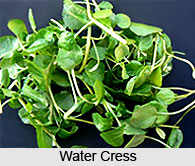 Minerals are of immense importance in Naturopathy. Like vitamins and amino acids minerals are crucial for regulating and building the trillions of living cells which make up the body. Body cells receive the vital food elements through the blood stream. They must, therefore, be appropriately nourished with an adequate supply of all the essential minerals for the well organised functioning of the body. Minerals help maintain the volume of water necessary to life processes in the body. They help draw chemical substances into and out of the cells and they keep the blood and tissue fluid from becoming either too acidic or too alkaline. The mineral elements which are needed by the body in substantial amounts are sulphur, magnesium, calcium, phosphorous, iron, sodium, potassium and chlorine. In addition the body needs minute amounts of iodine, manganese, zinc, copper, cobalt, selenium, silicon, fluorine and some others.
Minerals are of immense importance in Naturopathy. Like vitamins and amino acids minerals are crucial for regulating and building the trillions of living cells which make up the body. Body cells receive the vital food elements through the blood stream. They must, therefore, be appropriately nourished with an adequate supply of all the essential minerals for the well organised functioning of the body. Minerals help maintain the volume of water necessary to life processes in the body. They help draw chemical substances into and out of the cells and they keep the blood and tissue fluid from becoming either too acidic or too alkaline. The mineral elements which are needed by the body in substantial amounts are sulphur, magnesium, calcium, phosphorous, iron, sodium, potassium and chlorine. In addition the body needs minute amounts of iodine, manganese, zinc, copper, cobalt, selenium, silicon, fluorine and some others.
Calcium
The human body needs calcium more than any other mineral. Calcium performs many essential functions. Without this mineral, the contractions of the heart would be defective, the muscles would not contract correctly to make the limbs move and blood would not clot. Calcium stimulates enzymes in the digestive process and coordinates the functions of all other minerals in the body. Calcium is found in milk and milk products, whole wheat, leafy vegetables such as carrots, lemons, lettuce, watercress, oranges, spinach, and cabbage, almonds, figs and walnuts. Deficit may cause porous and fragile bones, insomnia, tooth decay, muscle cramps, heart palpitations, and irritability. Liberal quantity of calcium is also required when excessive calcium has been lost from the body as in hyperparathyroidism or chronic renal disease.
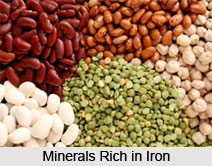 Phosphorus
Phosphorus
This mineral combines with calcium to create the calcium -phosphorus balance required for the growth of bones and teeth and in the formation of nerve cells. Phosphorus is also important for the assimilation of carbohydrates and fats. It is a stimulant to the nerves and brain. Phosphorous is found in abundance in nuts, egg yolk, fruit juices, cereals, pulses, milk and legumes. Usually about one gram of phosphorous is considered necessary in the daily diet. A phosphorous shortage may bring about loss of weight, reduced sexual powers, retarded growth, and weakness.
Iron
Iron is a significant mineral which enters into the vital activity of the blood and glands. Iron exists for the most part as haemoglobin in the blood. It distributes the oxygen inhaled into the lungs to all the cells. It is the master mineral which creates warms, vivacity and stamina. It is necessary for the healthy complexion and for building up resistance in the body. The chief sources of iron are whole grain, cereals, dried beans, grapes, raisins, spinach, all green vegetables, dark coloured fruits, beets, dates, liver and egg yolk. Iron deficiency is in general caused by severe blood loss, malnutrition, infections and by excessive use of drugs and chemicals. Iron is the classic medication for anaemia.
Sulphur
All living matter contains some Sulphur; this element is as a result essential for life. The main function of Sulphur is to dissolve waste materials. It helps to eject some of the waste and poisons from the system. It helps keep the skin clear of blemishes and makes hair glossy. It is also important in rheumatic conditions. The main sulphur containing foods are cabbage, cheese, dried beans, radishes, carrots, fish and eggs. Deficiency of sulphur may cause eczema and imperfect development of hair and nails. Sulphur creams and ointments have been outstandingly successful in treating a variety of skin problems.
Magnesium
All human tissues contain little amounts of magnesium. Next to potassium, magnesium is the chief metallic action in living cells. Magnesium helps one keep calm and cool during the sweltering summer months. It aids in keeping nerves relaxed and generally balanced. It is essential for all muscular activity. This mineral is in activator for most of the enzyme system involving carbohydrate, fat and protein in energy producing reactions. Magnesium helps prevent calcium deposits in kidneys and gallstones and also brings relief from indigestion. Magnesium is widely distributed in nuts, almonds, whole grains, soyabeans, lemons, peaches, brown rice, alfalfa, apples, figs, sunflower seeds and sesame seeds. Deficiency can lead to heart attack, epileptic seizures, nervous irritability, kidney damage and kidney stones, muscle cramps, arteriosclerosis, marked depression and confusion, impaired protein metabolism and premature wrinkles.
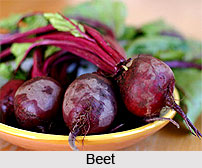 Sodium
Sodium
Sodium Chloride, the chemical name for common salt, contains 39 per cent of sodium, an element which never occurs in free form in nature. It is found in an associated form with many minerals particularly in plentiful amounts with chlorine. It acts with other electrolytes, mainly potassium, in the intracellular fluid, to control the osmotic pressure and maintain an appropriate water balance within the body. Sodium can help prevent catarrh. It promotes a clear brain, resulting in a better disposition and less mental exhaustion. Vegetable foods rich in sodium are celery, cucumbers, beet-tops, cabbage, lettuce, watermelon, lemons, oranges, grapefruit, corn, lady`s fingers, apple, berries, pears, squash, pumpkin, peaches, lentils, almonds and walnuts. Animal food sources include lean beef, kidney, shell fish, bacon and cheese. Deficiencies of sodium are, however, rare and may be caused by excessive sweating, prolonged use of diuretics, or chronic Diarrhoea. Deficiency may lead to muscular weakness, heat exhaustion, nausea, mental apathy and respiratory failure.
Potassium
Potassium is indispensable to the life of every cell of a living being and is among the most liberally and widely distributed of all the tissue minerals. It is found predominantly in the intracellular fluid where it plays an important role as a catalyst in energy metabolism and in the synthesis of glycogen and protein. Potassium is necessary for muscle contraction and therefore, important for appropriate heart function. It promotes the secretion of hormones and helps the kidneys in detoxification of blood. Potassium prevents female disorders by stimulating the endocrine hormone production. It is involved in the proper execution of the nervous system and helps overcome weariness. It also aids in clear thinking by sending oxygen to the brain and assists in reducing blood pressure. Potassium is widely distributed in foods. All vegetables, especially green, leafy vegetables, whole grains, lentils, sunflower seeds, nuts, grapes, oranges, lemons, raisins, milk, cottage cheese and butter milk are rich sources. Potassium deficiency may occur during gastrotestinal disturbances with severe vomiting and Diarrhoea, diabetic acidosis and potassium losing nephritis. In simple cases of potassium deficiency, drinking plenty of tender coconut water on a daily basis can make up for it.
Chlorine
In the human body, chlorine is liberated by the interaction of common salt, taken along with food, and hydrochloric acid liberated in the stomach during the process of digestion. It is important for the proper distribution of carbon dioxide and the maintenance of osmotic pressure in the tissues. Chlorine regulates the blood`s alkaline acid balance and works with Potassium in a compound form. It aids in the cleaning out of body waste by helping the liver to function. Chlorine is found in cheese and other milk products, rice, radishes, lentils, coconuts, green leafy vegetables, tomatoes, all berries, and egg yolk. Deficiency of this mineral can cause loss of hair and teeth.
Iodine
The chief store house of iodine in the body is the thyroid gland. Iodine regulates the rate of energy production and body weight and promotes proper growth. It improves mental alacrity and promotes healthy nails, skin, hair and teeth. The best dietary sources of iodine are kelp and other seaweeds. Other good sources are pineapples, pears, artichokes, citrus fruits, turnip greens, garlic, watercress, egg yolk and seafood and fish liver oils. Small doses of iodine are of great value in the prevention of goitre in areas where it is endemic and are of value in treatments, at least in the early stages.
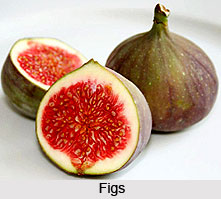
Copper
There are approximately 75 to 150 mg. of copper in the adult human body. Newborn infants have higher concentrations than adults. This mineral helps in the conversion of iron into haemoglobin. It stimulates the growth of red blood cells. It is also a fundamental part of certain digestive enzymes. It makes the amino acid tyrosine usable, enabling it to work as the pigmenting factor for hair and skin. It is also necessary for the utilisation of vitamin C. Copper is found in most foods containing iron, particularly in almonds, peas, lentils, whole wheat, dried beans, prunes and egg yolk. A copper insufficiency may result in bodily weakness, digestive disturbances and impaired respiration.
Cobalt
Cobalt is a component of vitamin B12, a nutritional factor required for the formation of red blood cells. The presence of this mineral in foods helps the synthesis of haemoglobin and the absorption of food- iron. The best dietary sources of cobalt are meat, kidney and liver. All green leafy vegetables contain some amount of this mineral.
Manganese
The human body contains 30 to 35 mg. of manganese, widely distributed throughout the tissues. It is found in the pancreas, kidney, liver, pituitary glands. This mineral helps nurture the nerves and brain and aids in the coordination of nerve impulses and muscular actions. It helps get rid of fatigue and reduces nervous irritability. Manganese is found in citrus fruits, the outer covering of nuts, grains, in the green leaves of edible plants, fish and raw egg yolk. A deficiency of this mineral can lead to poor elasticity in the muscles, confused thinking, dizziness, and poor memory.
Zinc
There are about two grams of zinc in the body where it is extremely concentrated in the eyes, nails, hair, skin and testes. Zinc is a precious mineral. It is needed for healthy skin and hair, proper healing of wounds, successful pregnancies and male virility. It plays a vital role in guarding against diseases and infection. The main dietary sources of zinc are beans, meat, whole grains, milk, liver, nuts, and seeds. Deficiency can result in weight loss, skin diseases, and loss of hair, poor appetite, Diarrhoea and frequent infection. Those suffering from rheumatoid arthritis may have a zinc deficit.
Selenium
Selenium and vitamin E are synergistic and the two together are stronger than the sum of the equal parts. Selenium slows down ageing and hardening of tissues through oxidation. Selenium is useful in keeping youthful elasticity in tissues. It alleviates hot flushes and menopausal distress. It also helps in the prevention and treatment of dandruff. This mineral is found in Brewer`s yeast, garlic, onions, tomatoes, eggs, milk and sea food. Deficiency of this mineral can cause premature loss of stamina.
Silicon
Silicon is indispensable for the growth of skin, hair shafts, nails and other outer coverings of the body. It also makes the eyes bright and helps in hardening the enamel of the teeth. It is advantageous in all healing process and protects body against many diseases such as tuberculosis, irritations in mucous membranes and skin disorders. Silicon is found in apples, cherries, honey, grapes, asparagus, beets, onions, almonds, peanuts and the juices of the green leaves of most other vegetables. Deficiency can lead to soft brittle nails, ageing symptoms of skin such as wrinkles, thinning or loss of hair, poor bone development, insomnia and osteoporosis.
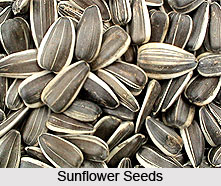 Fluorine
Fluorine
Fluorine is the element that prevents diseases from decaying the body. It is a germicide, and acts as an antidote to poison, sickness and disease. There is a strong affinity between calcium and fluorine. Fluorine is found in goat`s milk, watercress, garlic, cauliflower, beets, cabbage, spinach and pistachio.
Minerals thus play an important role in every bodily function and are present in every human cell. Although the amount needed may be small, without even the trace of the mineral, dysfunction is bound to occur at some level in the body.




